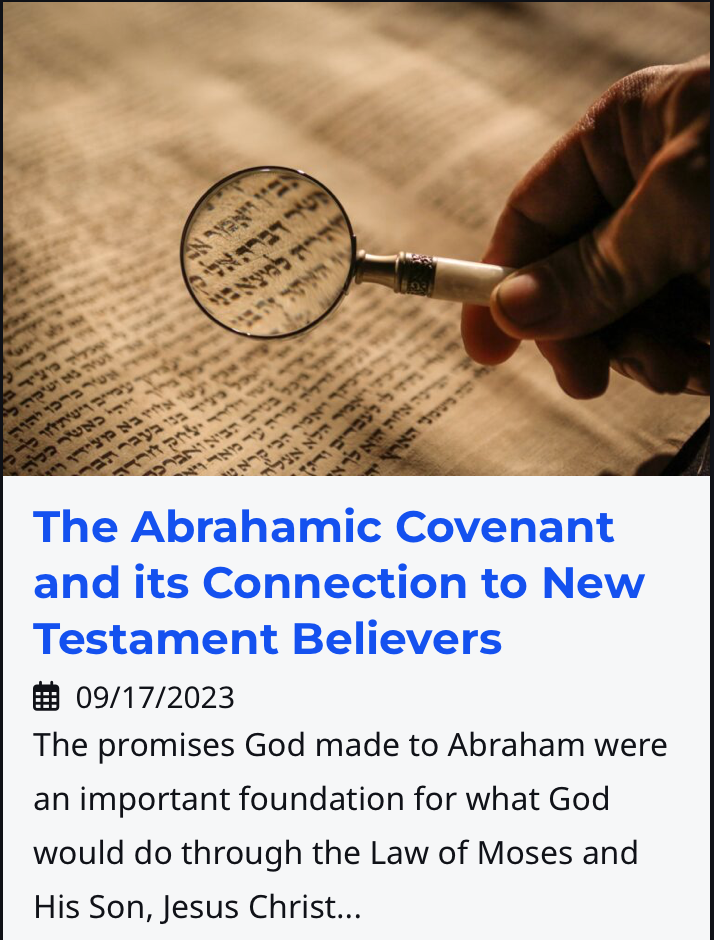Introduction
Jesus in the Gospels frequently referred to Himself as “The Son of Man”. Many question why Jesus used this term for Himself and what it meant. Was it a title referencing His humanity or a title referencing His divinity? It turns out that Jesus had a specific reason for referring to Himself in this manner that is important and potentially surprising to some.
Son of Man vs Son of God
It has been common to hear the assertion that “Son of Man” was Jesus’ human title because of its reference to man. While “Son of God” would have been seen as His divine title because of its reference to God. This analysis isn’t quite correct. Both sides of this argument are devoid of the historical and literary context in which they were used.
The academic response to this is that “The Son of Man” actually is a divine title while “The Son of God” is a title referencing the humanity of Jesus. This analysis is closer to the truth than the former. Additionally, it satisfies the academic need that we sometimes feel to give a clean, precise rebuttal in opposition to the first analysis. However, it still isn’t quite right.
The Son of God
This is where both arguments expose themselves as inadequate oversimplifications. The meaning of the term “The Son of God” is purely dependent upon both local context (within the passage it is used) and full Biblical context. In some cases, this phrase references created beings and their status as creations of God. In other passages it references the divine origin and nature of Jesus.
Humanity: Sons of God
Created beings are called “Son of God” or “Sons of God” in several places throughout the Old and New Testaments. For example, Genesis 6:2 tells us that “The sons of God saw that the daughters of men were beautiful…”. Although their exact identity is debated, it’s clear that they are created beings not the divine God.
We also see Adam referred to as “the son God” in the genealogy of Jesus given in Luke 3:38. Additionally, we see angels referenced as “sons of God” in Luke 20:36. In each case, these individuals are not called “sons of God” in a divine way, but they are called this because they are creations of God. Even Christians, as sons or children of God (Jn. 1:12-13), are called this because we are non-divine beings who gain an inheritance in God’s kingdom through the person and work of Jesus Christ.
Jesus as the Son of God
However, nearly every reference to Jesus as the “Son of God” carries a divine status. Those who oppose Jesus accuse Him of blasphemy (equating Himself to God) when He refers to Himself in this way (Matt. 16:16, Matt. 11:27, Mk. 14:61-62).
Some argue that the “Son of God” title refers to Jesus’ birth by Mary (human) by the power of God (divine). I interpret this as their tendency to try to link it to His humanity through His incarnation. There is perhaps a kernel of truth to this in the “begotten” passages of John 1:14, 3:16, 18.
Comparing the Two Renderings
Let’s compare the two renderings “Son of God” and “only begotten Son” in the original language. The original Koine Greek renders “only begotten Son” as “monogenēs huios” instead of the more common Greek phrase for “Son of God”, “ho huios theos”. When “ho huios theos” is used in reference to Jesus, it consistently refers to his deity as God, the Son, the second person of the triune Godhead. This is why the Jewish leaders of the day considered this Blasphemy.
However, “monogenēs huios” is slightly different. It does carry the implication of Jesus being born of God thus referencing the incarnated Christ. However, its stronger, more contextual meaning is that of one who is the Son of God in a unique way. While “only begotten” does this, our modern view of this language tends to limit it to Jesus’ birth.
Jesus isn’t just the born Son of God. He is the eternal pre-existent Son of God, the second person of the eternal Trinity. This is why modern translations prefer to render it “one and only Son”. Both renderings, “one and only Son” and “only begotten Son” have their strengths and weaknesses. However, the larger point of these passages was to show that the man, Jesus of Nazareth, was indeed the pre-existent eternal God.
Related Post
Jesus as the Son of Man
Jesus gave a direct affirmative answer when asked if He was the Messiah during His trial before the high priest.
Mark 14:61-62
Jesus’ use of the “Son of Man” title here makes two important connections. First, He connects the title to the Messiah (Is. 9:6, Matt. 1:21-23). Both the “Son of Man” and the “Messiah” come together in the person of Jesus of Nazareth. The second connection is to the “Son of Man” passage in Daniel 7. Jesus declared that it is He who is the “Son of Man” standing with the Ancient of Days to receive a kingdom and worship of the people.
Challenges to the Identity of the Son of Man in Daniel 7
Stephen R. Miller points out in his New American Commentary on Daniel that there are three primary theories regarding the identity of the “Son of Man” described in Daniel.[i] Some believe he is the Archangel Michael. Others believe he is a personification of the people of God or the Nation of Israel. The third option is that he is in fact the Lord Jesus Christ.
Archangel Michael
Some assert that the “Son of Man” from Daniel 7 is the Archangel Michael. There are examples of angels being described in a similar way to this (Rev. 10:1). However, I believe the primary draw to this is an assumption based on a non-trinitarian view of God.
It’s clear that the “Son of Man” is a distinct person from the Ancient of Days. However, the Son of Man receives a kingdom and worship (Dan. 7:14) from all people. Angels do not (Rev. 22:8-9). There is no Biblical or theological evidence that this is the Archangel Michael. In fact, the opposite seems to be true.
God’s People or Israel
Some believe that the “Son of Man” is a representation of the people of God or Israel. This theory also gives the benefit of holding a non-trinitarian view. The inheritance of the kingdom of God is evidence commonly cited for this view (Dn. 7:18, 22, 27).
The first objection to this view is that he’s called “The Son of Man” instead of “Son(s) of Israel” or “Son(s) of Jacob”, etc. However, the most powerful objection is the same one that rules out the Archangel Michael. The “Son of Man” receives worship and a kingdom. Christians and Israel do not receive worship (Dn. 7:18, 22, 27).
Related Posts
Jesus, The Son of Man
Jesus, the Messiah, is the best answer to the question of who the Son of Man is. Clearly there is only one God (Duet. 6:4, Is. 46:9, Is. 43:10). Yet, this Son of Man who appears in Daniel 7 is just as magnificent as God receiving only what is due God while also being distinct from the Ancient of Days (God the Father).
Additionally, in Revelation, John gives a detailed description of the Son of Man that clearly refers to Jesus as He is only one who “…was dead…” but is “…alive forever and ever…” (Rev. 1:18).
Revelation 1:12-18
Jesus repeatedly referred to Himself as the “Son of Man” throughout the Gospels (Matt. 8:20, 16:13, 26:24, 26:64, Lk. 19:10, Mk. 2:10, 2:28, 8:31). His self-identification climaxed at His trial in Mk. 14:61-62 with His boldest proclamation that aligned His identity with the identity of the Son of Man from Daniel 7.
Conclusion
It’s very clear as we read Scripture that the “Son of Man” is a divine title for none other than King Jesus, the Messiah. The Sanhedrin and religious leaders of Jesus’ day understood this as they accused Him of blasphemy for His claim. The Old and New Testaments both align with the understanding that this is a divine figure. Finally, Jesus self-identified as the divine “Son of Man”. His claim was authenticated by Himself and God the Father through His bodily resurrection and ascension to the right hand of Power. It is continually testified to today by the person and work of the Holy Spirit.
Related Post
Blessings
[i] Stephen R. Miller, The New American Commentary: An Exegetical and Theological Exposition of Holy Scripture, vol. 18, Daniel (Nashville, TN: B&H Publishing, 1994), 207-210.





3 thoughts on “Jesus: The Son of man”
I have struggled with the son of man, son of God and only begotten son. Great work clearing that up. We are praying for you buddy
I’m glad you found this post helpful. Thanks for your feedback and thanks so much for your prayers.
Pingback: Choose This Day Whom You Will Serve - Questions in Theology